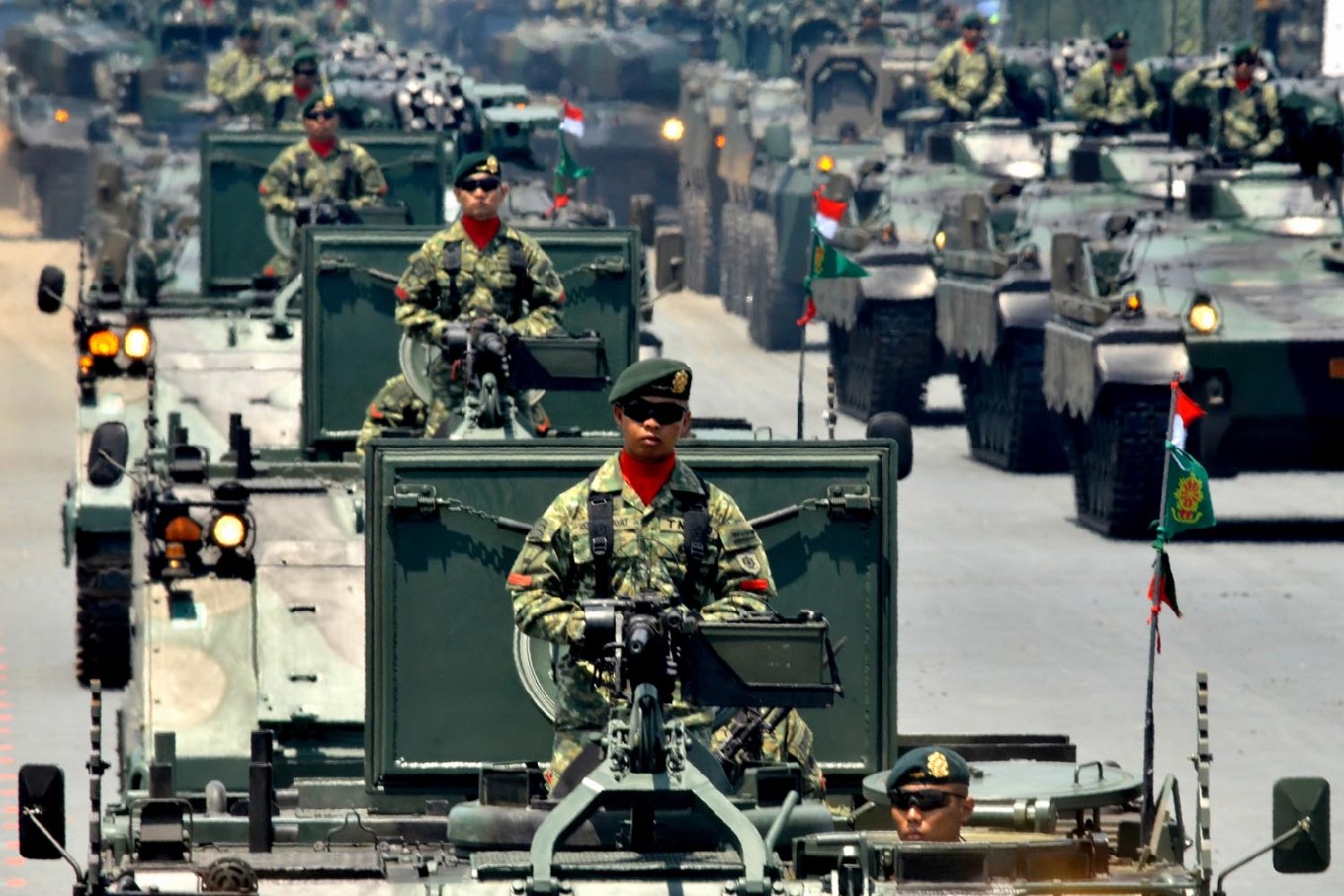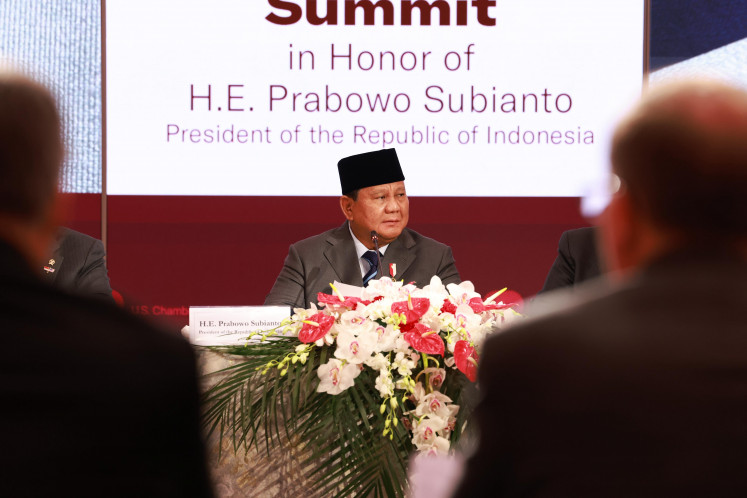Popular Reads
Top Results
Can't find what you're looking for?
View all search resultsPopular Reads
Top Results
Can't find what you're looking for?
View all search resultsModern, reformed TNI
Change text size
Gift Premium Articles
to Anyone
D
uring their televised debate on the weekend, the two presidential candidates contesting the April 17 election, Joko “Jokowi” Widodo and Prabowo Subianto, displayed equal commitment to strengthening the Indonesian Military (TNI) as a defense force capable of protecting the nation from external threats.
While incumbent President Jokowi promised to gradually increase the defense budget to 1.5 percent from the current 0.8 percent of gross domestic product (GDP), or Rp 107 trillion (US$7.5 billion), Prabowo also indicated his eagerness to allocate more money to the defense budget if elected. A former Army general, Prabowo said the country’s military spending was so low that national defense was vulnerable to attacks from external forces.
It is quite easy to understand Prabowo’s concern about national threats, hence his anger when hearing a chuckle in the audience that he perceived as belittling his warning about the country’s defenseless defense, as he spent much of his military career in combat operations. Similarly acceptable is Jokowi’s decision to not prioritize military buildup over massive infrastructure development because of suggestions that there would be no imminent military threats facing the country in the coming 20 years.
There is no guarantee, however, that TNI modernization to achieve military parity with regional powers would top Prabowo’s priority list if elected. On the contrary, a civilian and pragmatic politician like Jokowi may craft policies in favor of the military, which he has done so far, if he secures his second term.
It is safe to assume that whoever wins the presidency would seek a balance between efforts to fulfill the minimum essential force and improve the welfare of soldiers. With the economy unlikely to fully recover in the coming years, because of both domestic and global slowdown, either Jokowi or Prabowo would have to face the reality that they lack enough fiscal capacity to meet the ideal defense budget to GDP ratio of 2.5 percent, according to the Stockholm International Peace Research Institute.
Both Jokowi and Prabowo failed to elaborate on their commitment to completing military reform. Civilian supremacy is one of the most precious fruits of the reform movement in 1998, but the nation’s bid to build a professional military remains challenging, if not elusive.
Among the major obstacles to the goal are surely budget constraints. Soldiers can only focus on their basic responsibilities if they have no worry about the well-being of themselves and their families, or whether they are equipped with adequate weaponry. The TNI strategic plan for 2015 to 2019 stipulates that by the end of this year the military is to achieve 72 percent of the minimum essential force, with procurement of new submarines, radars and helicopters, among other equipment.
Another hurdle to military reform is the penchant for bringing the military back into nondefense functions among civilian politicians. It is the lack of confidence among the politicians that answers why the next goals of military reform — restructuring territorial commands and military tribunal law — are difficult to achieve.










